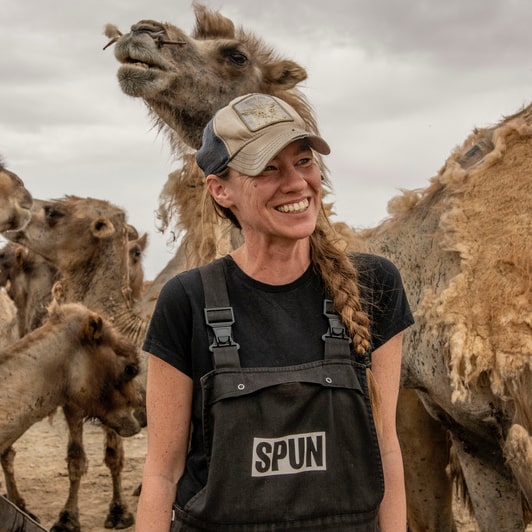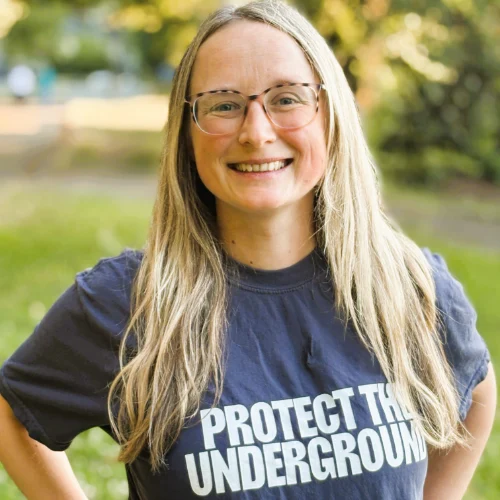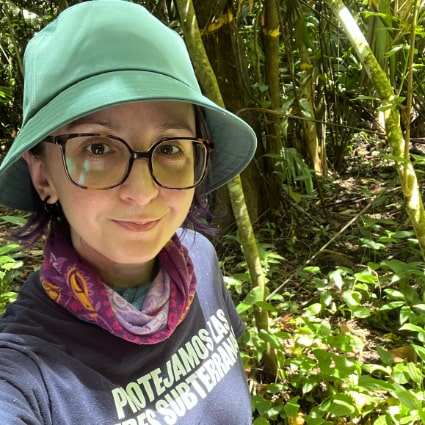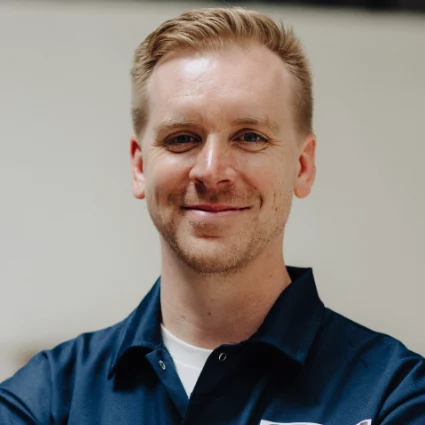Core Scientists
Press coverage around SPUN and mycorrhizal fungal networks.

Executive Director & Chief Scientist
Toby Kiers is a Professor of Evolutionary Biology and University Research Chair at Vrije Universiteit Amsterdam. Her lab uses nanoprobes and high-resolution imaging to map the nutrient flows and architecture of plant-fungal networks. She is globally-recognized for her scientific work in the evolution of symbiotic trade, and her public outreach activities, including a 2019 Ted Talk. Kiers won an Ammodo Award in 2019 for “unfettered science,” and was awarded the E.O. Wilson Award for Natural History in 2021 and a Stairway to Impact Award from the Dutch Science Foundation in 2022. Kiers was named as one of the 22 Scientists playing a crucial role in expanding our understanding of biodiversity by the UN committee on biodiversity.

Co-founder and Executive Director of SPUN
Dr. Toby Kiers is the co-founder and Executive Director of SPUN. She is also Professor of Evolutionary Biology at the VU in Amsterdam, where her lab studies the flows of carbon and nutrients inside fungal networks. Kiers was named by TIME100 as an emerging leader of for her work decoding fungal trade patterns, and an Explorer 50 for her work in mapping underground fungal systems across the Earth. She is the youngest scientist to ever win the SPINOZA prize – known as the ‘Dutch Nobel Prize’.

Lead Field Research Scientist & Underground Explorers Program Director

Lead Field Research Scientist & Underground Explorers Program Director
Adriana Corrales is a forest ecologist with a joint position as an Assistant Professor at the Universidad del Rosario in Bogotá. Her research focuses on the ecology and taxonomy of tropical ectomycorrhizal associations, and shifts in fungal community composition caused by biotic and abiotic factors. Her work has demonstrated key interactions between soil biogeochemical cycling, forest function, and ectomycorrhizal fungi in tropical montane forests.

Fungal Conservation and Restoration Scientist

Fungal Conservation and Restoration Scientist
Anne’s research focuses on using statistical analysis and modeling to understand ecological processes, with an emphasis on biodiversity conservation and the role of microbial functions in carbon and nitrogen cycling. During her PhD, Anne examined the role of mycorrhizal fungal networks in the uptake and transfer of salmon-derived nutrients within riparian forests. She is particularly passionate about using state of the art modeling approaches to understand fungal processes and contribute to research on fungal biodiversity and conservation. At SPUN, Anne focuses on developing an advanced understanding of key features and threats to mycorrhizal biodiversity.

Lead Computational Biologist

Lead Computational Biologist
Bethan began studying underground fungal networks during a PhD at the University of Cambridge examining Arbuscular Mycorrhizal Fungi and their genetic interactions with crop plants. She has a computational biology background through research into the genomics and transcriptomics of mycorrhizal fungi and a role as a Senior Computer Biologist in the Genome Reference Informatics Team at the Sanger Institute, UK. At SPUN, Bethan coordinates the sequencing of soil eDNA and the computational processes required to identify which mycorrhizal fungi are present.

Postdoctoral Data Scientist

Postdoctoral Data Scientist
Clara Qin is an ecologist, statistician, and environmental scholar who studies how fungal communities respond to multifaceted global change. Having researched soil microbiota in both unmanaged and agricultural systems, her work aims to unify eco-evolutionary theory across disciplinary contexts through methods development and process-explicit statistical modeling. She received her PhD from the University of California, Santa Cruz in 2023 and has won numerous awards for her papers and talks.

Mycorrhizal Field Ecologist, South America

Mycorrhizal Field Ecologist, South America
Daniela León Velandia is an Agricultural Microbiologist with a Master's in Biological Sciences and a Ph.D. in Plant Ecology and Ecophysiology from the University of Tartu. Her research has focused on the distribution of plant mycorrhizal traits in natural environments and the study of arbuscular mycorrhizal fungal communities in the Colombian Amazon. With over 14 years of experience in mycorrhizal research, she has collaborated with research groups at the Instituto Amazónico de Investigaciones Científicas SINCHI and the Universidad Nacional de Colombia. Passionate about the agricultural and scientific sectors.

Geospatial Data Scientist

Geospatial Data Scientist
Jinsu is a data scientist hoping to close the geospatial digital-divide in the work to preserve nature and protect people. Jinsu aims to be a point of connection between his communities and innovative science. He developed a high-resolution mangrove species discrimination model for East African coastal forests. At SPUN, Jinsu is building the tools and models which will allow for predictions of mycorrhizal biodiversity using remote sensing data.

Postdoctoral Ecologist

Postdoctoral Ecologist
Justin has been researching microbes since 2014. Their research has taken them from rooftops and rainforest to better understand the biogeography of microbial symbiosis. During this time they have generated maps of where microbes are and why. Justin is currently working on their PhD in Evolution with Toby Kiers on the evolutionary ecology of underground networks. Their work has also extended into science communication with over 16K followers on their Twitter feed. Justin has the goals of mapping the underground for climate science and sustainability.

Applied Mycorrhizal Data Scientist

Applied Mycorrhizal Data Scientist
Since her PhD at the University of Buenos Aires and postdoc years at the University of Guelph, Mica has specialized in the field of soil microbial ecology. Much of her research explores how soil and plant-associated microbes respond to agriculture, land use change, and restoration. Her work also aims to link microbial communities with broader ecosystem processes relevant to soil and environmental health, to promote sustainable agricultural practices and foster resilient ecosystems.

Lead Data Scientist

Lead Data Scientist
Michael Van Nuland is an ecologist and evolutionary biologist interested in the connections between plant and microbial biodiversity. He combines data science approaches with large-scale observations, controlled experiments, and molecular sequencing to explore how plant-microbe interactions shape species biogeography and broad ecological patterns. His work on the evolutionary dynamics and climate change responses in plant-microbe linkages received multiple awards from the National Science Foundation and from a variety of organizations dedicated to advancing soil ecology research.

Executive Director & Chief Scientist

Executive Director & Chief Scientist
Toby Kiers is a Professor of Evolutionary Biology and University Research Chair at Vrije Universiteit Amsterdam. Her lab uses nanoprobes and high-resolution imaging to map the nutrient flows and architecture of plant-fungal networks. She is globally-recognized for her scientific work in the evolution of symbiotic trade, and her public outreach activities, including a 2019 Ted Talk. Kiers won an Ammodo Award in 2019 for “unfettered science,” and was awarded the E.O. Wilson Award for Natural History in 2021 and a Stairway to Impact Award from the Dutch Science Foundation in 2022. Kiers was named as one of the 22 Scientists playing a crucial role in expanding our understanding of biodiversity by the UN committee on biodiversity.





